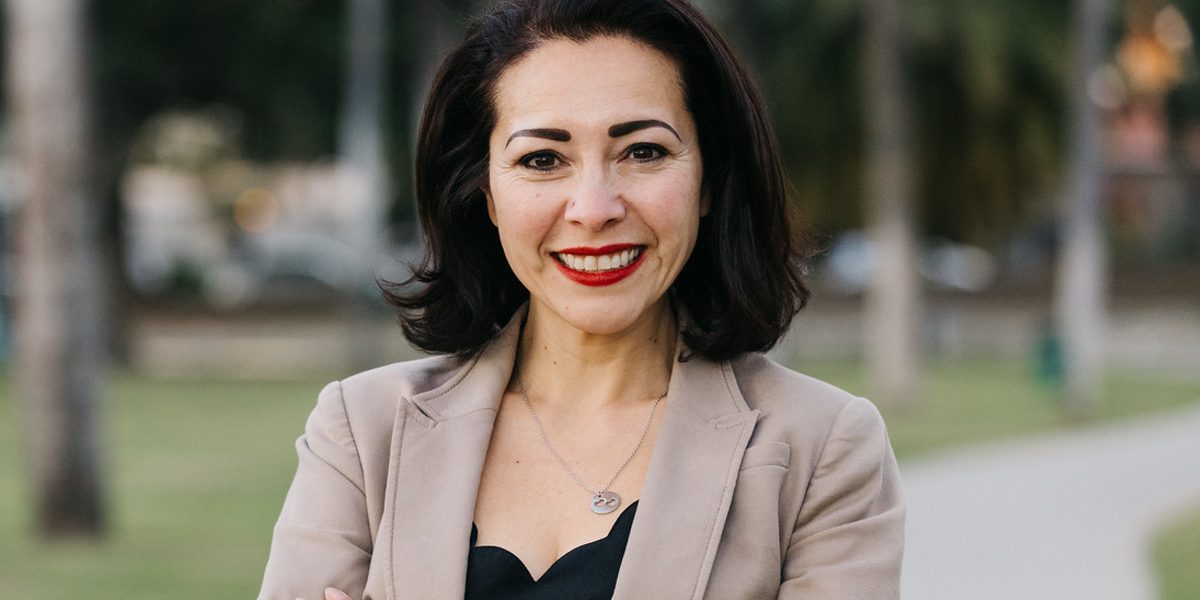Militant hotel workers union UNITE-HERE Local 11’s petition to recall Anaheim Councilwoman Natalie Rubalcava has qualified and the Anaheim City Council has set June 4 of this year as the date for the election.
However, qualifying a recall is one thing – winning one under a new state law that took effect last year is another matter. Two recall elections in the past six months in Orange County may offer some insights into Rubalcava’s prospects.
The successful recall of state Senator Josh Newman in 2018 spurred state Democrats to pass a number of laws designed to make it more difficult for voters to recall elected officials. One of these bills dramatically altered the dynamics of local recall elections by abolishing the replacement ballot.
Since being instituted a century ago under progressive Governor Hiram Johnson, a recall has consisted of two linked but separate questions to voters: whether or not the elected officials in question should be recalled, and which candidate on the “replacement” ballot should be elected in his or her stead.
Democratic politicians got rid of the replacement ballot for the express purpose of making it more difficult for recalls to succeed: without candidates on the replacement ballot driving turnout and “yes” votes, recalls were more likely to fail.
That proved to be the case in the failed attempt to recall Santa Ana Councilmember Jessie Lopez. Her recall bears certain similarities to Rubalcava’s: in both cases, the recall petition was bankrolled and qualified by a union desirous of ousting them in hopes of tipping the balance of power on the city council. In Lopez’s case, it was the Santa Ana Police Officers Association (SAPOA). In Rubalcava’s it is UNITE-HERE Local 11, which is still angry over her key role in the crushing defeating Measure A, the onerous wage-increase and work-rules measure the union put before Anaheim voters last year.
UNITE-HERE Local 11 needs two more allies on the Anaheim City Council to have Measure A – or something like it – enacted by council action. Last year, Mayor Ashleigh Aitken and Councilman Carlos Leon voted to adopt it as an ordinance. Districts 1, 4 and 5 are on the November 2024 ballot. District 5 is an open seat, and recalling Rubalcava would put District 4 on the November ballot – meaning Local 11 would only have to win 2 of 4 seats on the ballot to elect a majority that is friendly to its political agenda.
The SAPOA spent several hundred thousand dollars on the recall campaign, but in the end was unsuccessful. Lopez and her allies ran a very robust and organized campaign, painting the recall as an unfair attempt by an influential special interest to punish Lopez, and beat it 56% to 43%.
It’s worth noting that Lopez was originally elected in 2020 with only 34% of the vote in a three-way race, and her politics are significantly to the Left of the mainstream of voters in her ward.
Rubalcava, on the other hand, is a good fit politically with her council district, where she won a decisive victory in 2022 with nearly 58% of the vote – handily defeating a two-term trustee of the Anaheim Union High School District who had the backing of the outgoing council incumbent.
The point being that given the difficulty in successfully recalling a weak Santa Ana council incumbent who is not in synch politically with most of her constituents, Local 11 faces a stiffer challenge in it’s attempt to oust Rubalcava.
What About The Successful OUSD Recall?
What about last week’s apparently successful recall of two Orange Unified School District trustees? How does it portend for Local 11’s recall campaign against Rubalcalva.
Here again, significant differences emerge. The two campaigns are very different on an organic level. As in the Lopez and Rubalcava recalls, unions played a significant role in the OUSD recall in terms of leadership, fundraising and canvassing. However, there was also a considerable grass-roots component to the “No” campaign. The school district has a history of political and policy turbulence that impacts OUSD voters in ways that city council actions generally don’t. Furthermore, many OUSD voters already have experience recalling school board members, having recalled three trustees in 2003.
Local 11’s campaign against Rubalcava simply lacks the polarizing, high-profile, close-to-home issues that the OUSD recall revolved around. Indeed, the reasons listed in petition for recalling Rubalcava read like someone’s late homework assignment: sloppy thought-out and hastily written.
UNITE-HERE Local 11 In It – But Can They Win It?
UNITE-HERE Local 11 has proven itself adept at gathering signatures to qualify ballot questions. The union qualified Measures J, K and L in 2018; Measure A in 2023, and the Rubalcava recall this year.
They’re not so good at winning those ballot questions.
Measures J and K were referenda seeking to overturn the city council-approved development agreements for two luxury hotels planned Wincome Hospitality because they weren’t unionized. Local 11 lost both of those measures.
Measure L proposed a high minimum wage at any Anaheim hotel that had a tax subsidy agreement with the city of Anaheim: this was aimed at the two Wincome properties and a big 4-Diamond hotel Disneyland was planning.
Disney had hired a campaign team and was gearing up to fight Measure L when the company unexpectedly decided to cancel the luxury hotel project as well as its deal with the city for a gate tax moratorium. Basically, Disney shuttered the No on Measure L campaign and walked off the field. This took Wincome by surprise, forcing them to scramble to put together a new campaign from scratch at a very late stage in the game.
In effect, there wasn’t a “No on Measure L” campaign until late in the election season. Despite Local 11’s big head start and the disarray in the ranks of Measure L opponents, it was a fairly close-run thing with Measure L passing 54% to 46%.
Last year’s Measure A is perhaps the most glaring example of disconnect between Local 11’s skill at qualifying ballot measures and comparative clumsiness at winning the ballot question. Measure A was sold as a worker safety measure to equip vulnerable housekeepers with “panic buttons” – the shiny object intended to distract voters from the initiative’s economically destructive wage and wok rules. Some Anaheim politicos thought Local 11 packaging of Measure A made it a slam-dunk. Who could be against protecting hard-working housekeepers?
Contrary to conventional wisdom, Measure A went down to an epic defeat in the October special election, losing by a lopsided 66% to 33%. Local 11 was completely outmaneuvered by the hotelier-business coalition on messaging and mobilizing. The union leadership stuck with their panic-button narrative even though the City Council had already adopted an ordinance requiring hotels to provide housekeepers with panic buttons (a requirement adopted in cooperation with Anaheim hoteliers, a number of whom were already in the process of equipping staff with these personal security devices).
The lead sponsor of the panic button ordinance was…Councilwoman Natalie Rubalcava – hence the vengeance recall campaign by UNITE-HERE Local 11.
The Local 11-led “Yes on Measure A” campaign spent at least $1.3 million on behalf of the initiative, only for it to be rejected by two-thirds of the voters. It’s true the “No” campaign spent $3.5 million to defeat it – but that’s what happens when you qualify an initiative to presents an entire sector of the Anaheim economy with a choice of defeating that initiative, or going out of business. Co-President Ada Briceno and UNITE-HERE Local 11, in a very real sense, created the coalition that wiped them out at the ballot box.
Outside of Anaheim but nonetheless indicative was passage of a UNITE-HERE Local 11-sponsored Measure RW that will raise hotel worker’s hourly wage from the current $17.55 to $23 this year, escalating it to $29.50 by 2028.
Measure RW was placed on the ballot by a Long Beach City Council populated by Local 11 fellow travelers. There was literally no opposition campaign, while the UNITE-HERE Local 11 sponsored campaign spent $393,000 on the “Yes” campaign. Despite that colossal disparity, Measure RW only passed by margin of 53.12% to 46.88%. In other words, UNITE-HERE Local 11 outspent its non-existent opposition by 393,000-to-nothing and won by only 6 points – indicating even a modestly-funded “No” campaign may well have defeated Measure RW.
So what does all this portend for Rubalcava’s prospects for beating the recall? Based on the factors driving the outcomes in the Jessie Lopez and OUSD recall elections, and UNITE-HERE’s spotty record regarding it’s own ballot measures – plus Councilwoman Rubalcava’s demonstrated campaign work ethic and the lack of any community groundswell or grassroots desire for change in District 3 – she stands a good chance of beating this thing.


